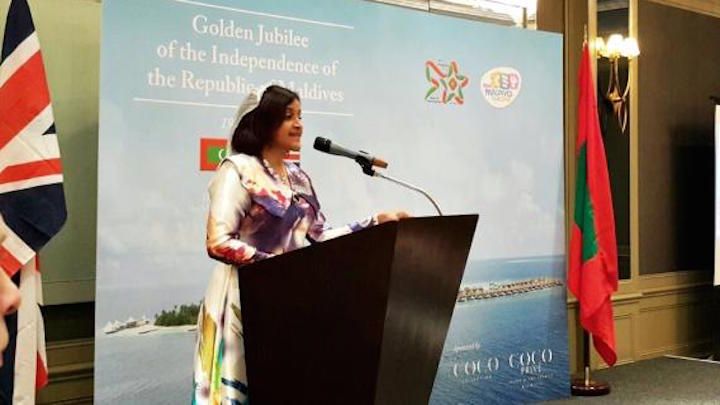Opposition slams foreign minister’s gripe of ‘global spotlight’ hampering democracy
MPs of the main opposition Maldivian Democratic Party (MDP) have slammed Foreign Minister Dunya Maumoon’s claim that the global spotlight on the Maldives is hampering the growth of nascent democratic institutions.

16 Sep 2015, 09:00
MPs of the main opposition Maldivian Democratic Party (MDP) have slammed Foreign Minister Dunya Maumoon’s claim that the global spotlight on the Maldives is hampering the growth of nascent democratic institutions.
“Young institutions do not grow when leaders of powerful countries give running commentaries on every decision such institutions make. Growing up under the international spotlight is not easy for any country. Yet, the government is determined to prevent reversals,” Dunya said at a function held in London yesterday to celebrate the Maldives’ golden jubilee of independence.
The foreign minister’s remarks follow mounting international pressure on the government and renewed calls by the UN human rights chief as well as the US and UK government’s to release former President Mohamed Nasheed and other jailed politicians .
The foreign ministry has issued multiple statements defending Nasheed’s imprisonment ahead of a judgment from the UN working group of arbitrary detention, expected in mid-October.
Become a member
Get full access to our archive and personalise your experience.
Already a member?
Discussion
No comments yet. Be the first to share your thoughts!
No comments yet. Be the first to join the conversation!
Join the Conversation
Sign in to share your thoughts under an alias and take part in the discussion. Independent journalism thrives on open, respectful debate — your voice matters.




